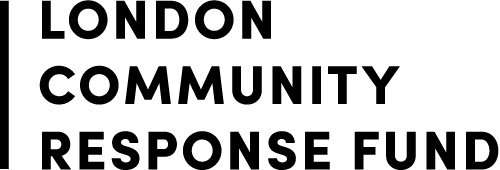In conversation with Kwame Kwei-Armah (Wow)
|
What has the past year been like for you? It’s been a hard year. Seeing even my grandson who’s six years old, having to negotiate within the confines of a family home, not having access to his friends or to the performative side of himself. It’s been hard. But I have hope. You can see a light at the end of the tunnel; that the aperture continues to open. And that part of the light is how we make sure the part of rehabilitating, our children, for the lost years, is through the lens of art. Why do you feel that it’s so important for children to have access to the arts? I think that imagination is political. I think imagination is everything. It is a refuge. Imagination is future building. With the arts we open up new worlds. We ask you to enter them and feel comfortable in looking at yourself and in learning about yourself or about the things that surround you. Drama therapy exists for a reason. We are often unaware that we ALL do it all of the time, because as soon as we switch on our televisions, as soon as we think about going to the theatre, or to an exhibition, we are partaking in drama therapy. We all need the opportunity to partake in the art of looking at yourself through a new and fresh lens. Without this opportunity we deny children access to their inner self, to their performative self, to the self that can be free of all of the pressures of being a young person today. And to deprive them of this is the equivalent of reducing their eyesight and their hearing. I feel really passionate about that access to art because I was very fortunate as a child. My whole education was based around the arts. I went to a stage school, which meant that every day we dealt in art. I think it enriched me. It allowed me to have greater empathy for the world. It allowed me to understand the power of arts to change people in profound and fundamental ways. That’s what I’ve gone on to do with my life, to catalyse debate about oneself or one’s environment through the prism of art. So, when you asked me if I would be a patron of Artis, I was humbled because that’s been my life. And our wish for the next generation is that our ceiling is their basement. That they can experience the rich possibilities of opening up their imagination so they are able to fly.
Are there any moments in your childhood where the arts have given you that moment and taken you to a different place, or on a different journey? There were so many, so many. The one that really springs to mind is when I was 12 years old. I was taken by the lecturer of my older sister’s college to Stratford upon Avon. I was just waiting for the show to begin because I desperately wanted to see the acting. When we got in, we sat down and once we sat down, there was noise from behind me. Someone was shouting, and then they started running towards the stage. Ushers jumped onto that person, and there were lots of shouts of “Let go of me!” I was thinking that we’d travelled all this way from London to Stratford, to now not be able to see the show because of this riot! And I didn’t understand what was going on. Then the shouting individual escaped from the ushers and he ran onto stage and pulled the curtain down. I then realised that it was part of the show! There, on a motorbike, was an actor, getting ready to do The Taming of the Shrew. I’ve never forgotten that. And the reason I never forget it is because, not only was I so looking forward to the show, but I felt invested by the pre-show activity. By the time the show had started, I was in all the way. I would say that my directorial approach, even to this day, is rooted in that Michael Bogdanov production with Jonathan Pryce on the motorbike. I later found out it was this very famous production. I didn’t know it then. All I cared about was the spectacular show that was unfolding before me in that moment. Imagination is political. The act of involving me – someone who never went to the theatre and who thought that it was not even the place for me – of making me so excited and invested from the jump was a beautiful and political artistic act, that has never left me. Did you know you were a kinesthetic learner? I think if you would speak to any of my teachers at school, they would say that I was a beautiful, wonderful student who sat quietly at the back, who was very studious and who never, ever bought any attention to himself… Evidently you know I’m lying! I’m a kinesthetic learner. I learn from discussion and I always have. I can remember when I learnt the word kinesthetic. And I went, oh, it’s valid, I am valid – it is a valid way of learning. It’s a bit like when we looked at David Beckham and all of a sudden we said that’s a physical intelligence. It’s a combination of the physical and the cerebral, it’s not just the cerebral and actually in the arts, we see that interplay really clearly. There was a reputation that English actors would read Shakespearean verse beautifully. But it would be from the head up, and not in the body. It’s really important that in a world where we’re often only privileging one dimension of intelligence, we understand that this actually puts us all at a disadvantage. Our schools must find the way to meaningfully bring kinesthesia right into the heart of the learning process. What did you think about your visit last year to a school that Artis works in? I visited a school in Finsbury Park and I saw the person who led the session. I was so excited watching the session as she invigorated these young children; particularly the shy ones, those who were in the corner, away from the boisterous naturally ebullient children. They were given time and space to be their physical and cerebral self. It should never be one or the other – it is the combination of heart and soul, of mind, body and spirit. I love Artis. I’m a big supporter of what you do. But I actually saw it. This wasn’t theoretical. I saw children grow before my eyes. And at the end of the session. I saw them leave it with more confidence. I saw them leave with more joy in their step than I saw when they walked in. That has to be a positive thing.
|
12 Apr 2021 |
















